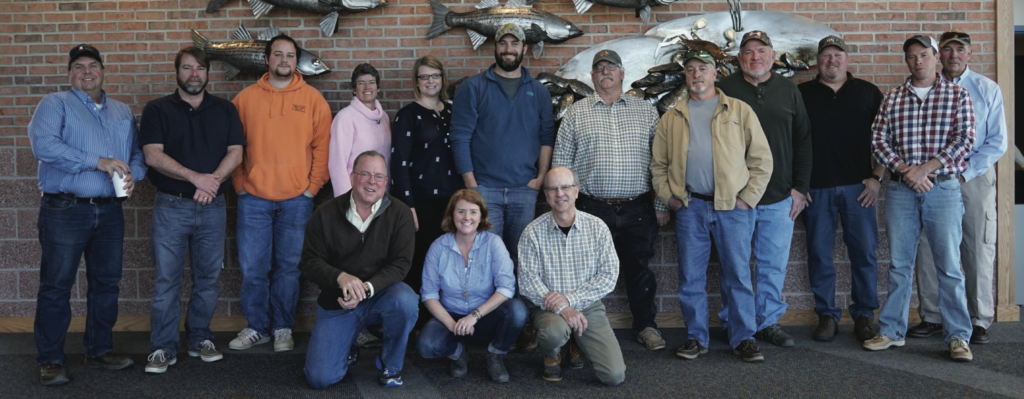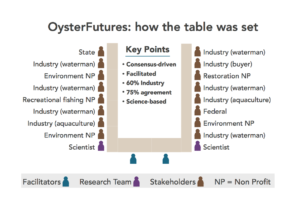Environmentalists and watermen have come together to reach a broad set of recommendations for restoring oysters in the Choptank and Little Choptank rivers. OysterFutures, led by the University of Maryland Center for Environmental Science (UMCES) and funded by National Science Foundation, is a research project aimed at achieving thriving oyster populations.
Watermen and environmentalists have long debated what to do about ecosystem health in Maryland. Watermen have said that their livelihoods are at risk, and they have advocated for harvesting oysters from the state’s oyster sanctuaries. Environmentalists argue that restoration projects and sanctuary reefs are thriving, and that opening the sanctuaries could undermine any hope of restoration.
In March, the group reached consensus on a package of recommendations that they sent to the Maryland Department of Natural Resources. Eight meetings took place in 2017 and early 2018 between 16 members.

Top row from left: Johnny Shockley, Ward Slacum, Cody Paul, Kelley Cox, Allison Colden, David Sikorski, Jeff Harrison, Robert Whaples, J.D. Buchanan, Greg Kemp, Robbie Casho, Bobby Leonard. Bottom row from left: Dave Blazer, Stephanie Reynolds Westby, Joe Fehrer. Not pictured: Aubrey Vincent.
Together, the two groups have reached agreement on a number of issues, including increased enforcement against poachers and rotating access to oyster sanctuaries for harvest. All stakeholders agreed that restoration must continue.

During the OysterFutures Workgroup meetings, stakeholders sat at a U-shaped table in a different seat at each meeting. Image credit: Dylan Taillie.
Nine private weekend sessions allowed participants to speak freely, and all agreements had to be reached by a consensus vote. Scientists from UMCES and the Virginia Institute of Marine Science (VIMS) acted as consultants, providing data and perspective at the meetings. Based on the different restoration options, the scientists would run models and the workgroup would review different scenarios.
The group recommends increasing shells to replenish reefs, and increased funding for restoration. While they did not recommend funding sources, participants hope that future talks will continue their efforts and expand on their agreements.
To read the full package of recommendations from the meetings, view their PDF.
